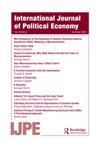Foreign Direct Investment in Neoclassical Theory of International Trade: A Conceptual Weak Spot
IF 1.3
Q3 ECONOMICS
引用次数: 0
Abstract
Abstract This article analyses the role of foreign direct investment (FDI) in neoclassical theory of trade with a focus on the relocation of production into low wage countries. The conceptual analysis shows that FDI not only constitutes a weak spot in comparative advantage theory, but also that the latter is incompatible with efficiency-seeking FDI—with significant implications for policy. In Ricardian and Heckscher-Ohlin models of trade, FDI is ruled out via the assumption of factor immobility. In models in which factor immobility is relaxed, the closest FDI comes to is a generic reference to capital imports and exports, which affect factor endowments and, therefore, comparative advantage. Due to the assumption that input factors are determined by wage-rental ratios, this leads to the condition that firms operating in advanced economies must produce more labor-intensively, if investing in facilities in low-wage countries. Efficiency and market-seeking FDI, which combines productive, capital-intensive modes of production with cheap labor to exploit unit labor cost differentials, is a theoretical and mathematical impossibility in this framework. This conceptual weakness questions the validity of conventional approaches to development policy, which largely rely on market liberalization and free capital mobility.新古典国际贸易理论中的外国直接投资:一个概念弱点
摘要本文分析了外国直接投资(FDI)在新古典贸易理论中的作用,重点关注生产向低工资国家的转移。概念分析表明,外国直接投资不仅构成比较优势理论的薄弱环节,而且与追求效率的外国直接投资不相容,这对政策具有重大影响。在李嘉图和Heckscher-Ohlin贸易模型中,通过假设要素不流动,FDI被排除在外。在放松要素不流动的模型中,最接近的外国直接投资是对资本进口和出口的一般性提及,这影响要素禀赋,从而影响比较优势。由于假设投入要素是由工资租金比决定的,这就导致了在发达经济体经营的公司,如果在低工资国家投资设施,就必须生产更多的劳动密集型产品。在这一框架下,效率和市场导向的外国直接投资(FDI)在理论上和数学上都是不可能的,它将生产性、资本密集型的生产方式与廉价劳动力相结合,以利用单位劳动力成本差异。这一概念上的弱点对发展政策的传统做法的有效性提出了质疑,因为传统做法主要依赖于市场自由化和资本自由流动。
本文章由计算机程序翻译,如有差异,请以英文原文为准。
求助全文
约1分钟内获得全文
求助全文

 求助内容:
求助内容: 应助结果提醒方式:
应助结果提醒方式:


